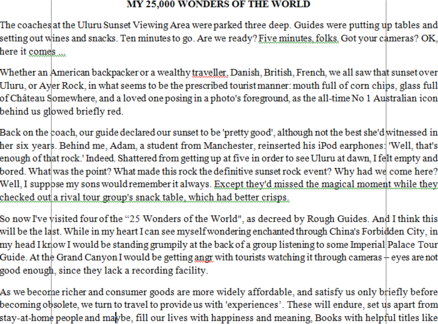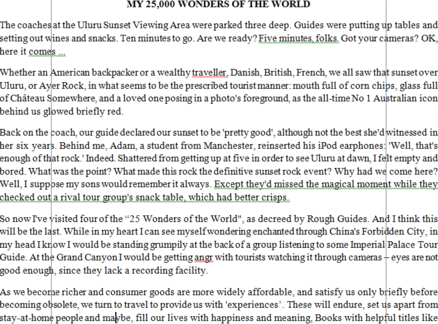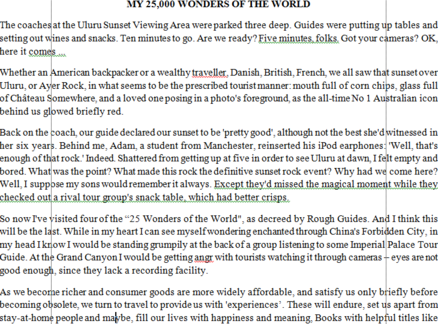Hãy nhập câu hỏi của bạn vào đây, nếu là tài khoản VIP, bạn sẽ được ưu tiên trả lời.

Đáp án C
The Great Barrier Reef reproached us (rạn san hô Great Barrier quở trách chúng tôi) có nghĩa là sai lầm khi không tới thăm rặng san hô này khi tới Australia.

Đáp án D
Thông tin: Herman Melville, an American author best known today for his novel Moby Dick, was actually more popular during his lifetime for some of his other works
Dịch: Herman Melville- nhà văn người Mĩ nổi tiếng nhất hiện nay với tiểu thuyết Moby Dick, ông càng được biết tới rộng rãi hơn qua một vài tác phẩm khác trong suốt cuộc đời của mình.

Đáp án A
Thông tin: Moby Dick, on one level the saga of the hunt for the great white whale, was also a heavily symbolic allegory of the heroic struggle of man against the universe
Dịch: Moby Dick- cuốn tiểu thuyến trường thiên kể về các cuộc săn cá voi trắng khổng lồ, đồng thời cũng là một câu chuyện ngụ ngôn mang tính biểu tượng về cuộc đấu tranh anh dũng của loài người chống lại vũ trụ.

Đáp án D
Thông tin: He traveled extensively and used the knowledge gained during his travels as the basis for his early novels
Dịch: Ông đã đi chu du nhiều nơi và sử dụng những kiến thức có được từ những cuộc hành trình để làm cơ sở cho những cuốn tiểu thuyết đầu tiên

Đáp án A
Thông tin: In 1841 Melville set out on a whaling ship headed for the South Seas. After jumping ship in Tahiti, he wandered around the islands of Tahiti and Moorea.
Dịch: Vào năm 1841, Melville bắt đầu chuyến hành trình trên 1 con tàu săn cái voi tiến về vùng biển phía Nam. Sau khi xuống tàu ở Tahiti, ông đã đi lang thang khắp các đảo ở Tahiti và Moorea.

Đáp án D
Dịch: Bất kỳ học sinh nào bị bắt nhầm đều được thực hiện để đứng trước lớp.

Đáp án C
Thông tin: At the Grand Canyon I would be getting angr with tourists watching it through cameras – eyes are not good enough, since they lack a recording facility.
Dịch: Tại Grand Canyon, tôi sẽ cảm thấy tức giận với khách du lịch khi xem nó qua camera - đôi mắt không đủ tốt, vì họ thiếu một cơ sở ghi âm.

Đáp án C
Dịch: Một trường đại học là một tổ chức giáo dục và nghiên cứu đại học, nơi cấp bằng đại học ở tất cả các cấp trong nhiều môn học.









Đáp án B
Thông tin không đề cập trong bài.